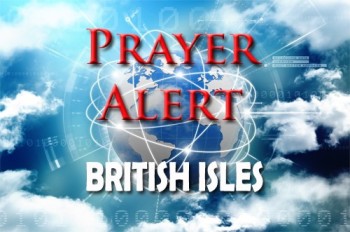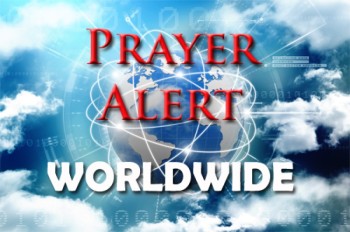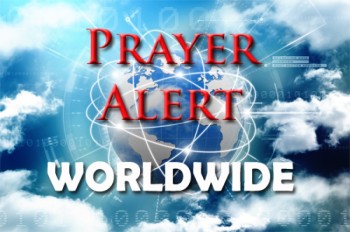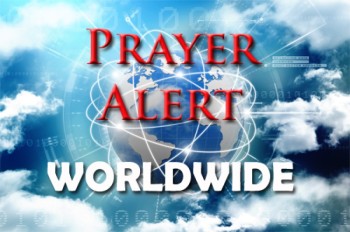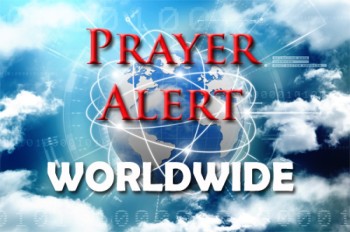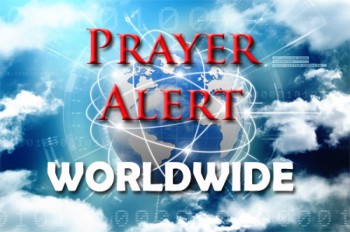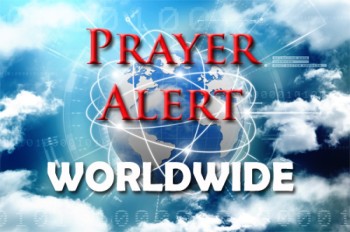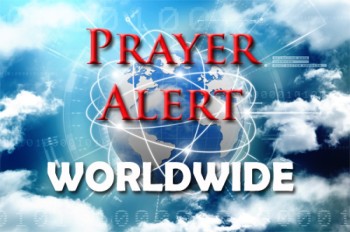Prime Minister symbolises Britain's religious freedom
Rishi Sunak’s rise to Prime Minister was on the front pages of most of India’s newspapers. The Evangelical Alliance said his appointment would reflect Britain's religious diversity. ‘As a nation, we celebrate freedom of religion and belief and it's important that we're able to recognise different people's religious beliefs and how they practise it. We should be encouraged that people are free to practise different beliefs, but in the same way, that we should stand for the freedom to practise our own religion.’ There are calls for a period of a ‘quiet, stable government’ under Rishi Sunak. Christian Conservative MP John Glen who has known Mr Sunak since 2014, said he believes Sunak has the integrity, drive and intelligence to restore the UK's reputation after the political and financial turmoil of recent weeks.
Ukraine: Situation report
Fighting and shelling continues in eastern and southern Ukraine, and strikes in other areas have caused additional destruction of civilian infrastructure and a large number of civilian deaths and injuries. The civilian toll has reached 14,000 confirmed deaths since the beginning of the war. Nearly 18 million people (40% of Ukraine’s population) need humanitarian assistance, and the situation is expected to deteriorate further in the winter months. As villages and towns are being liberated from Russian occupation in Ukraine’s ongoing counteroffensive, significant needs remain - and the Ukrainian advances may halt with the arrival of winter. Many communities still lack access to clean water, electricity, and mobile phone service. Many have limited food supplies. The clean-up and rebuilding effort will take some time. Pray for: The church and ministry networks across Ukraine and neighbouring countries who are mobilising to bring food, clothing, first aid and medicine; evacuation and temporary accommodation assistance; psychological and spiritual support; rebuilding damaged properties and preparing for winter.
Europe: Heightened media repression
Russia’s war waged against Ukraine has created devastating consequences for freedom of the press. Reporters have been killed and injured in the field and censorship not seen since the Soviet period’s massive disinformation. Five journalists and media workers died from gunfire during the first month of Russia’s offensive. The Russian military has targeted news sources in territories it occupies and bullies the local media to cooperate. The government has complete control of Russian news and extensive wartime censorship, blocking the media, and pursuing non-compliant journalists. Many are forced into exile. In 2021 Putin toughened the law, labelling the media as ‘foreign agents’. This information control does not stop at Russia’s borders. The Kremlin is imposing its version of the war on its neighbours, especially Belarus, where independent journalists have been persecuted since the 2020 controversial presidential election, and 20+ media workers languish in prison. (Globally 59 journalists were killed and 524 imprisoned this year).
USA: Violent extremism before US election
A violent attack on Speaker of the House Nancy Pelosi's husband fractured his skull. He is recovering from surgery just a week before the midterm elections. A few hours later the government issued a bulletin warning of a ‘heightened threat’ of domestic violent extremism against candidates and election workers driven by individuals with ‘ideological grievances. Also, the US Department of Justice reported a man had pleaded guilty to making multiple phoned death threats against a Democratic congressman, stating he would come to Washington with a firearm. The political system is in a crucial moment. Republican and Democrat votes will determine who controls Congress next year. Republicans warn this is the last chance to put a check on Joe Biden's presidency. Democrats say American democracy is at stake because numerous Republican candidates refuse to accept 2020’s election results. A violent wave is building. In the first three months of 2022, more than 1,800 incidents were documented.

